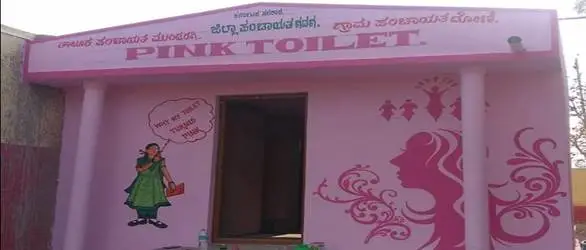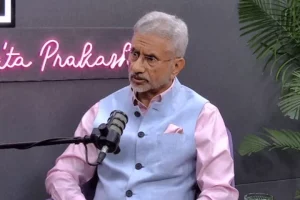In a move to make sanitation accessible, safe and at the same time remove embarrassment during menstrual days among adolescent girls, pink toilets are being constructed in 32 villages of the Gadag district of Karnataka, according to information provided by the Union Ministry of Jal Shakti on Monday.
Of these, 20 units have been completed while 12 are in an advanced stage of completion. The cost of each unit is Rs 6 lakhs, 50% of which is provided under the Centre’s MGNREGA scheme while the rest is financed by the Swachh Bharat Mission and Gram Panchayat 15th Finance fund, the official statement explained.
Equipped with adequate water supply, lighting, a changing room and other amenities, the wash room for adolescent girls and women is an innovation under the Swachh Bharat Mission Grameen (SBM-G). Each unit has an incinerator which is used for safe disposal of sanitary pads and menstrual waste.
Menstrual Hygiene Management is an integral part of the waste management under the SBM-G campaign, underlining the importance of this otherwise taboo topic that impacts not just health and wellbeing, but also education and overall development of girls and women in the country.
The Department of Drinking Water and Sanitation has issued guidelines to support all adolescent girls and women. It outlines what needs to be done by State governments, district administrations, engineers and technical experts in line departments as well as school head teachers and teachers.
The initiative has been appreciated by girls and women as it has helped to remove embarrassment during their menstrual days.
In Gadag, to ensure proper use and maintenance of the facilities, training has been conducted, at school level, involving School Development and Monitoring Committee (SDMC) members, teachers, and gram panchayat members in the programme. It specifically covered the use of incinerators.
There are also plans are in the pipeline to train women at the village, through the NRLM Self Help Groups to make sanitary pads. In the meantime, awareness programmes are being conducted for school children, the messages reinforced through wall writing, brochures, posters that are distributed and pasted in public spaces. Safe sanitation and hygiene messages are also promoted through social media and documentaries.




















